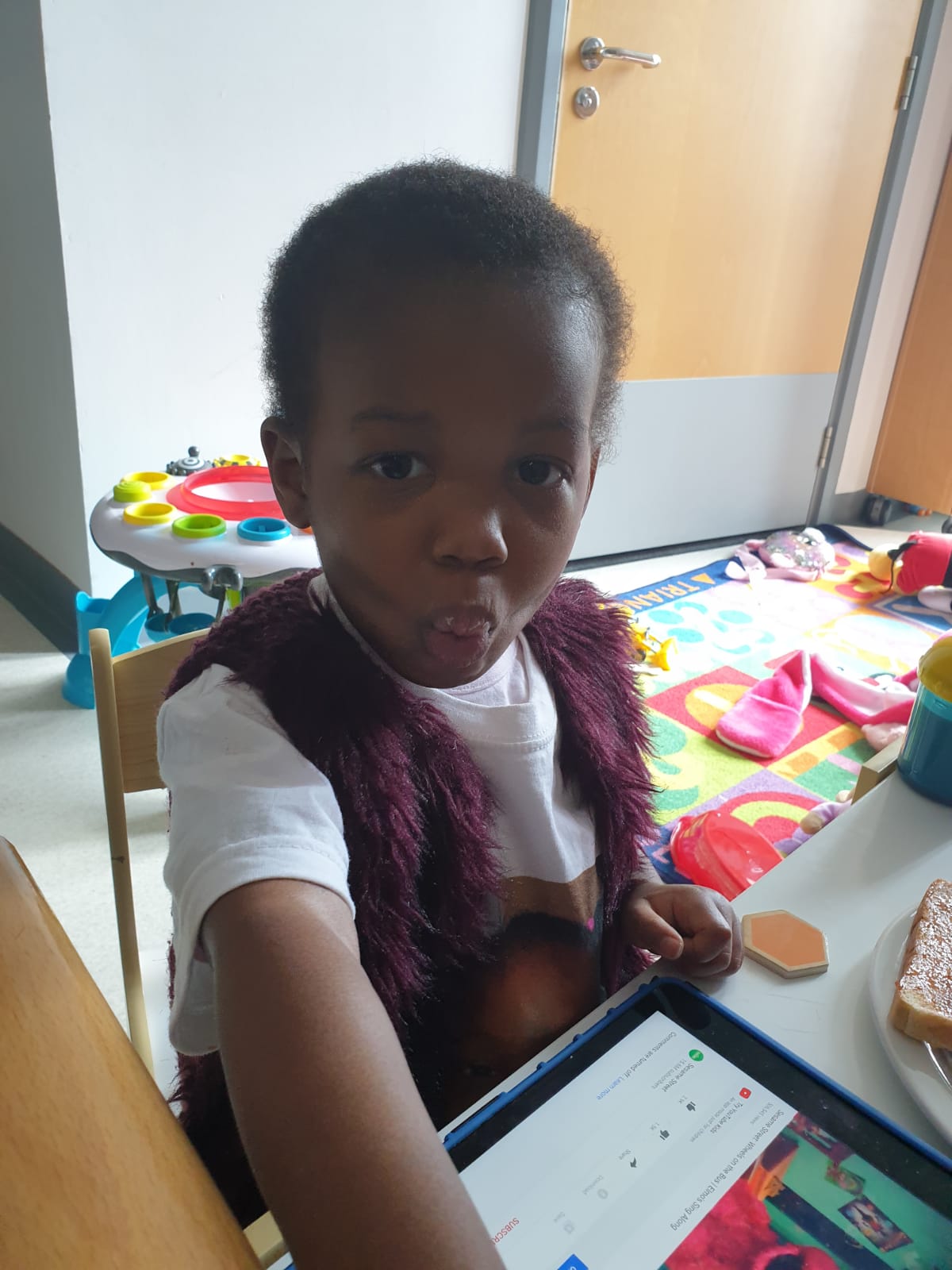
A grieving mother who lost one daughter to a rare blood disorder and is now supporting her younger child through the same illness has made a heart-felt plea for people from black and minority ethnic (BAME) backgrounds to become stem cell donors.
Blessing Olalemi’s daughter Valerie died in April.
The eight-year-old had a rare hereditary immunodeficiency called chronic granulomatous disorder.
Now Ms Olalemi’s four-year-old daughter, Praise, is battling the same illness.

“We’ve barely had a moment to grieve for our daughter and now we’re praying for our four-year-old to survive,” the 39-year-old, from the London Borough of Barking & Dagenham but now living in Newcastle-upon-Tyne, told the PA news agency.
The rare illness prevents white blood cells, which help the body to fight infections, from working correctly and a blood stem cell transplant offers the best chance of survival.
Praise, who was diagnosed with the condition at birth, was told she would need to rely on a stem cell donation from a stranger for her best chances of survival.
Stem cell donors are found through genetic matching and the majority of matches will come from someone with the same ethnicity.
Blood cancer charity DKMS said people with black backgrounds only have a 20% chance of finding a matching blood stem cell donor.
Meanwhile, people from northern European backgrounds have a 69% chance.
Today marks the start of #BlackHistoryMonth. The perfect time to raise awareness. The perfect time to create change.
Please, help us spread the word.
Help us to give Black patients the same chance as everyone else. 🖤 pic.twitter.com/gjOImUtF8O
— DKMS UK (@DKMS_uk) October 1, 2020
Praise’s Nigerian heritage means she is less likely to find an exact match.
The charity said that, last month, Praise had a blood stem cell transplant at the Great North Children’s Hospital in Newcastle.
A lack of donors meant there was no “perfect” match, so the transplant went ahead with the best possible match.
The youngster is currently recovering in hospital.
Mrs Olalemi, who also has another daughter, Kayla, 11, who was born without the disease, said: “With time running out, we had to go with our best option and we’re grateful for that person for registering and doing such a selfless act.
“It’s been a heart-breaking situation to be in. We’ve barely had a moment to grieve our middle daughter and now we’re praying for our four-year-old, Praise, to survive.
“My husband, John, and I desperately want to encourage more people, especially those from a BAME background, to sign up as potential blood stem cell donors with DKMS.
“Hopefully, this will prevent others from falling into the same situation as our family. If we had more people on the register, Valerie might have found her match and still be here, and Praise would have been matched with a stronger donor.

“Both my daughters underwent years of extensive treatments.
“The price you pay waiting for a match is a high one. Valerie paid with her life, whilst Praise has experienced deafness along with other complications, and it’s still touch and go.
“I wouldn’t wish this on anyone, so, whilst many of us focus on Black History Month, we’d like to take this opportunity to change the future narrative for black donors and those from the wider BAME community.”
Jonathan Pearce, chief executive of DKMS UK, said: “We have this year developed specific activities to guide our work in supporting the further diversification of the UK’s aligned stem cell registry.
“The key to this is increasing the number of people from BAME backgrounds and communities on our register to be over-representative of the actual BAME populations in Britain.
Saying ‘YES’ to being a lifesaver is a big deal. That’s why we’ll take care of all the little details. Things like these ⬇️
Saying ‘YES’ to donating means that you’ll give someone just like you a second chance of life. ❤️
Make sure we can reach you: https://t.co/OoYW5Yp2bp pic.twitter.com/HvFACBWVwi
— DKMS UK (@DKMS_uk) October 6, 2020
“We know that some BAME communities are under-represented as potential blood stem cell donors in DKMS UK’s register, such as people from black African-Caribbean, Bangladeshi, Pakistani, Chinese and mixed ethnicity backgrounds. So I would urge anyone that can register as a potential blood stem cell donor to please take action and go on stand-by to help save a life.”
Nine in 10 people called forward to be stem cell donors will do so with a process similar to a blood donation.
Just one in 10 is asked to donate bone marrow.
People aged between 17 and 55 and in good general health are asked to join the stem cell donor register, particularly those from BAME backgrounds.
– To find out more visit https://www.dkms.org.uk/en/praise


Comments: Our rules
We want our comments to be a lively and valuable part of our community - a place where readers can debate and engage with the most important local issues. The ability to comment on our stories is a privilege, not a right, however, and that privilege may be withdrawn if it is abused or misused.
Please report any comments that break our rules.
Read the rules here